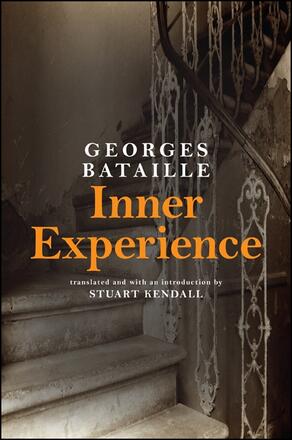
Outlines a mystical theology and experience of the sacred founded on the absence of god.
Description
Originally published in 1943, Inner Experience is the single most significant work by one of the twentieth century's most influential writers. It outlines a mystical theology and experience of the sacred founded on the absence of god. Bataille calls Inner Experience a "narrative of despair," but also describes it as a book wherein "profundity and passion go tenderly hand in hand." Herein, he says, "The mind moves in a strange world where anguish and ecstasy take shape."
Bataille's search for experience begins where religion, philosophy, science, and literature leave off, where doctrines, dogmas, methods, and the arts collapse. His method of meditation, outlined and documented here, commingles horror and delight. Laughter, intoxication, eroticism, poetry, and sacrifice are pursued not as ends in and of themselves but as means of access to a sovereign realm of inner experience.
This new translation is the first to include Method of Meditation and Post-Scriptum 1953, the supplementary texts Bataille added to create the first volume of his Summa Atheologica. This edition also offers the full notes and annotations from the French edition of Bataille's Oeuvres Complètes, along with an incisive introductory essay by Stuart Kendall that situates the work historically, biographically, and philosophically.
Georges Bataille (1897–1962), a medievalist librarian by training, founded the College of Sociology and the secret society Acéphale. He was equally famous for his contributions to French literature, art criticism, anthropology, philosophy, and theology. Bane of theologians, existentialists, and surrealists during his lifetime, he became an essential reference for the poststructuralist generation of French intellectuals, including Roland Barthes, Jean Baudrillard, Michel Foucault, and Jacques Derrida. Stuart Kendall is a writer, editor, and translator working at the intersections of modern and contemporary art and design, critical theory, poetics, and theology. He is the author of the critical biography Georges Bataille and the editor and translator of four other books by Bataille, including Guilty, also published by SUNY Press.